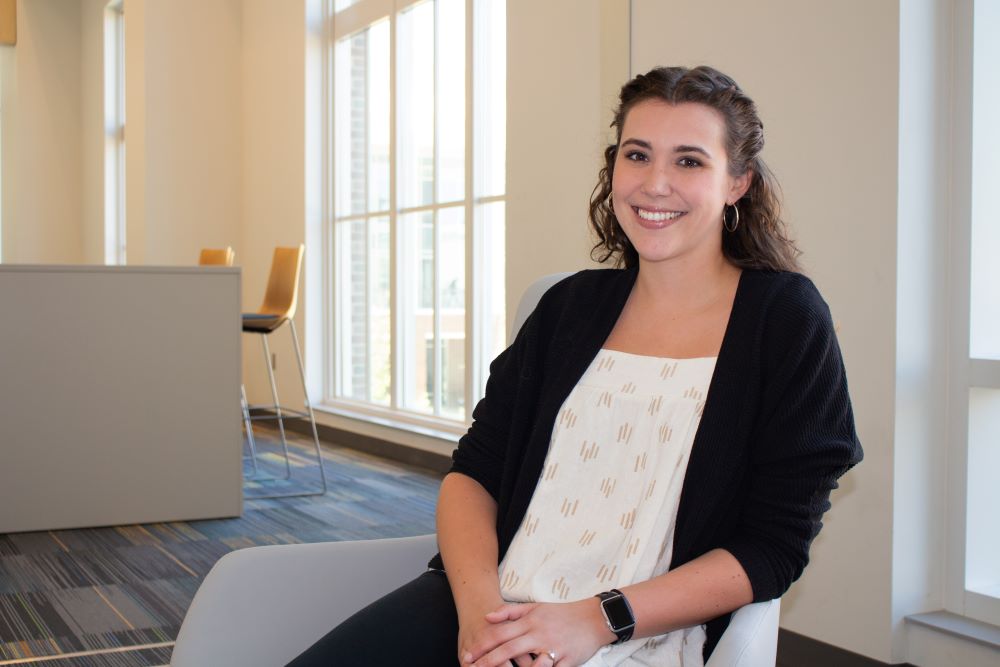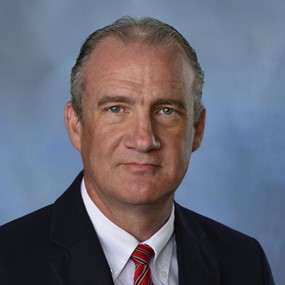Auburn doctoral student developing writing therapy for students facing microaggressions

Writing as a therapeutic exercise can help a person process complex or negative emotions. Cassidy Brydon, a doctoral candidate in clinical psychology, is developing the first culturally sensitive expressive writing model, specifically for people who experience microaggressions.
A "microaggression," coined by psychiatrist Chester Pierce, is a subtle degradation associated with a racial or ethnic group. These negative exchanges may happen daily and range in severity from race-based jokes to the use of slurs.
Brydon said emerging research shows students who experience microaggressions also report increased levels of fatigue, stress and other symptoms regularly associated with post-traumatic stress disorder (PTSD).
"You're coming in and out of class, you're already tired and stressed from academic stressors and then you have these compounding stressors that you're experiencing all of the time," Brydon said. "There's even some research indicating that there's biological factors that get impacted, like structures in the brain. So, we have a lot of research to indicate that it's harmful."
Expressive writing is a type of exposure therapy originally developed for patients experiencing PTSD. The patient writes about a trauma-related life stressor for 20 minutes a day, three days in a row, to normalize negative feelings surrounding the stressor and minimize long-term, harmful impacts of the trauma.
Since her undergraduate studies, Brydon has explored expressive writing as an avenue to improve psychological health outcomes. In her current project, "Writing Wrongs," Brydon hopes to tailor the therapy to target the experience of microaggressions.
"When you're surrounded by people who don't look like you and don't have your lived experience, it's more likely that you're going to experience these things, whether or not they're intentional," Brydon said. "Coming to Auburn and moving from south Florida where, as a Latina, I fit in a lot more and I don't experience a whole lot of microaggressions, moving to the south, having a very different experience, and seeing my loved ones have a very different experience, got me thinking more and more about microaggressions."
Brydon's expressive writing model is currently undergoing clinical trials. The feedback collected will further inform the research project's two-fold goal in delivering an effective and desirable therapy for processing microaggressions.
In the pilot study, Brydon noted that minoritized students who completed an expressive writing session did not specifically mention racial or ethnic stressors. Participants expressed hesitancy to discuss those stressors because they were unsure if they were allowed to speak about them or if the psychologists would want to know about those experiences.
By specifically asking about microaggressions, Brydon hopes to create space in an already effective intervention model for culturally informed care.
"Expressive writing is supposed to sort of dial down the severity of those feelings that you experience associated with the event. By asking, it opened the door for people to really process and go through the intervention about microaggressions specifically," Brydon said. "Expressive writing has a lot of literature to say that it works, but this specific adaptation doesn't necessarily have that literature yet. The main thing is that it is very much tailored to the population that we're hoping this will impact."
Once Brydon has collected feedback from the target audience, she hopes to make the "Writing Wrongs" intervention available for free online. Further, she hopes to contribute the first culturally sensitive adaptation of expressive writing to mental health literature and practice.
Until then, Brydon recommends expressive writing to help manage the psychological strain of daily stressors.
"Journal about the same thing for a few days in a row, see how you feel before and after, and reflect on that," Brydon said. "Tailor it to your experience. Maybe 20 minutes is too much, and five minutes is more convenient for you. Maybe typing is better than writing. It's so flexible and scalable, you can do it anywhere and anyhow. It's just a matter of sitting with the experience and writing about your thoughts and feelings related to the event."
Find more information about the clinical psychology program at the College of Liberal Arts website.






